SurvivorStack: A directory of newsletters about life after trauma
Find your next great read on trauma, recovery and what it means to survive
Updated 7 October 2025: SurvivorStack currently includes 110 newsletters about trauma and recovery.
Welcome to Life after Trauma. This community is rooted in supporting and empowering survivors to recover from their experiences, and find a way to live better in the aftermath. If you’d like to support that mission, please consider joining us!
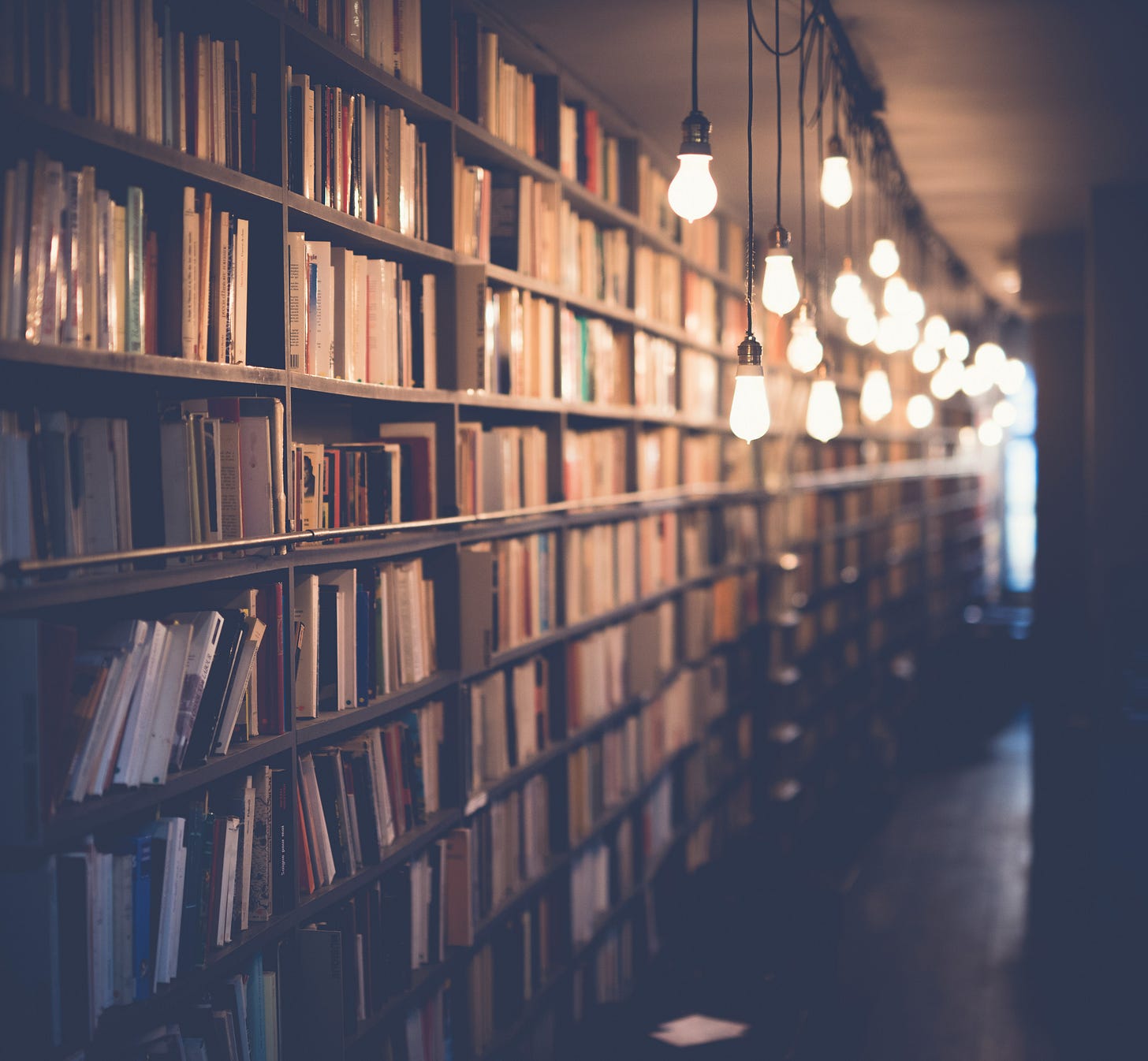
When I first started trying to recover from the sexual violence I’d experienced in childhood, I really struggled to find accurate information. This was in the 2000s, before #MeToo, before #BelieveSurvivors, before there was any kind of public conversation about trauma and recovery. I read what I could - mostly academic books, and the occasional memoir - but I was desperate for other survivors' stories.
Because trauma changes you. The person you were before the traumatic event is gone, and you have to remake yourself in the aftermath. It is often a very lonely experience, it doesn’t need to be. Actually, we were never meant to do it alone.
Life after Trauma (formerly known as Beyond Survival) is the community and resource I wish I’d had back then. SurvivorStack is an extension of that mission. It exists to honor our collective voices and further nourish our healing.
There are thousands of writers on this platform, all toiling away in our separate silos. I want to bring us together, so we can share and amplify our important work.
Submit your newsletter
If you’d like to be included in this directory, please leave a comment telling me a little more about your newsletter. You’re welcome to nominate another newsletter you enjoy, but self-nominations are also encouraged. Writing about trauma isn’t easy, so please take this opportunity to toot your own horn!
I will be including publications that:
Are written by writers who self-identify as survivors of trauma
Regularly write about trauma and recovery (You don’t need to only write about trauma and recovery to be included here, but it should be a significant part of your newsletter.)
Are active on Substack with at least 5 published posts (If you’re taking a break from publishing regularly but have an archive of posts, you are very welcome.)
I’m not endorsing the content of the publications included, nor do I agree with them 100% of the time. But I trust readers to be able to use their own judgment and find the publications that resonate with them.
Thank you for co-creating SurvivorStack with me!
Working on Life after Trauma, I often think of the person I was ten years ago. I felt so alone, as I scrambled to come to terms with my mother’s death and the sexual abuse I’d experienced as a child. Life after Trauma is the resource that would have changed my life if it existed a decade ago.
Together, we can compile a directory of publications that will be a useful starting point for anyone interested in thinking differently about life after trauma and finding community for the path ahead. Because we were never meant to do it alone.
In solidarity,
Clare x
P.S. If you’re discovering this post later, please go ahead and leave a comment about your newsletter. I’ll be updating the directory every month, and would love to include you.
P.P.S. If anything changes with your publication or you’d like to amend your description, please let me know. There’s been a lot of interest in this directory and I’ve done my best to write a short description that accurately captures each newsletter’s unique perspective. But if it doesn’t feel right to you, please reach out and we’ll fix it.
A Survivor's Book of Days: In her own words,
writes “about life after surviving father-daughter incest (poetry, personal essays, research). Hard, but necessary work💛❤️🔥”A Thin Space: In her own words,
writes "personal essays of awareness and intention that help readers to feel seen and understood with an emphasis on healing and wholeness. For those who feel and live deeply, this newsletter is your companion."Abundance Whore: In her own words,
is “a writer, mover, and trauma-informed autonomic nervous system educator exploring the edges of creativity and embodiment. My work is rooted in depth psychology, the neurobiology of connection, dance as medicine, and ancestral repair.” writes essays about overcoming the trauma of anticipatory grief. In her own words, her newsletter is "a series of true stories that explain the cancer journey I experienced as a caregiver after my husband was diagnosed with breast cancer. The shock of a grave medical diagnosis led to my search for the meaning in life and how to confront life’s many unknowns."All Parts: In
’s words, “All Parts is for overwhelmed deep-feelers exhausted from our over-intellectualized world. Join me, a somatic psychotherapist & breathworker with a low BS tolerance, for educational and personal stories of healing, reconnecting to joy, and living more alive.” writes about “LGBTQ+ rights and coming out as trans and non-binary, sharing support, joy, and collective healing through martial arts” is an author, writing teacher and speaker who shares the joy and creativity in trauma recovery. In her own words, “I publish two to three times a week: one publishing or promo tip, one writing tip, and (this just started) one tip specially for survivors.” writes about "autism, hurdles I’ve overcome whilst growing up in a household full of narcissistic abuse and a dysfunctional family, as well as feelings related to going no-contact."Antoinette Cooper Writes: In her own words,
is “a writer and teacher who walks between worlds. Her debut book UNRULY explores what happens when we refuse to make ourselves small. Her newsletter is about about decolonial love, ceremony, curiosity, and the holy art of being too much.”Bay Area Rape Girl: In her own words,
writes about “post-feminism, safety, and stopping rape.Beauty, Terror and Everything In Between: In her own words,
writes “fortnightly letters on posttraumatic growth (what’s to gain, through whatever you’re handed), served with love, grit, and magic. [Her] work and writing centers on embodied resilience in the wake of acute, shock and chronic, complex trauma. I self-identify as a warrior versus survivor, though they’re synonymous in my mind.” writes about living with Traumatic Brain Injury and other bodily injuries, domestic violence, adult & childhood sexual assault, medical & disability trauma and being unknowingly neurodivergent and all the bullying, abuse, sensory, and interpersonal issues that come with that. She also writes the Tinkerings of an Elemental Alchemist newsletter which documents her "art & nature therapy adventures".Bird On A Mast: In her own words,
"shares my latest ruminations, passions, and weaknesses to offer a peek inside the mind of an unfinished human writing an unfinished tale. Join me as I become myself and a writer at the same time." Andrea is also writing a memoir about how childhood sexual assault impacted her, how she hid for half her life— afraid of the world and myself, and what finally changed for her.Breast Cancer Diary: Finding My Bearings Now: In her own words
writes about “living as a breast cancer survivor who also lived through ten years of childhood sexual abuse and non-custodial kidnapping. I don't focus on reliving or detailing my past experiences, but do write about how it colors my responses to the present and how I am trying to find contentment and occasional joy.”Breathe Yourself Home: In her own words,
writes “about domestic violence, losing a partner to suicide, being a single parent, and navigating monumental grief. Writing the truth, being extremely vulnerable, and walking alongside others who have experienced similar grief, she believes, is vital on her healing journey.” is a mental and spiritual health writer, speaker, and coach. In her own words, her newsletter “is a companion on your mental and spiritual health journey. It shares stories, resources, and practices that can help you get through hard times and take steps that lead to better days.”Chris’s Substack: In his own words,
writes about life after his partner’s death: survival, processing, and grief in a new life. is an independent writer, cultural change maker, truth teller, and moral philosopher. She writes essays and literary nonfiction about ethics, politics, relationships, sexuality, violence, trauma, and unconditional compassion.Creative, Playful and Deep:: In her own words, Christine Castigliano (
) shares “stories, songs and support for creative healing with a lighthearted vibe. I’m a cPTSD survivor who created HeartsQuest, a playful deck of 52 practices and videos, to help myself and others return to our center of clarity and compassion.”Daddy Blackbird: In her own words, Caroline (
) writes “about surviving after loss by suicide (my husband left one day and was later found having taken his own life), how I started to put one foot in front of the other, and how I’m navigating my children through their grief too.” She is a widow, survivor and author of the bestseller ‘Daddy Blackbird: the true story of a family surviving and thriving after loss by suicide’.Debbie's Substack: In her own words,
is a “Wisconsin native who writes about how I survived church and childhood. I grew up in various Pentecostal churches spending the most time in the United Pentecostal Church. Now I work to help survivors heal and thrive.” & describe Depths of Repair as "Untangling the barriers that make finding genuine connection and growth so difficult. Strategies and tools presented through raw personal stories of failure, resilience, and unearthing our best selves."Don’t Let the Past Steal Your Soul: In his own words
“chronicles [his] journey of healing from childhood and adolescent physical, emotional, and sexual abuse. Through [his] trauma memoir writing, [he] explores the complex path from surviving to thriving, offering honest reflections on recovery, resilience, and reclaiming one’s narrative.”Down Clarty Lonnen: In her own words,
is a "childhood sexual and emotional abuse survivor, and in her seventh decade writing about survival and finding our voice post menopause".Dreaming In the Real: In her own words,
is “releasing a memoir on Substack chapter by chapter about my journey to wholeness after generational and developmental trauma, loss and domestic abuse.”Ed's Gambling Journey: In his own words, Ed is writing about "my recovery from gambling addiction, as well as dealing with the delayed trauma of losing a parent at a young age. I am discovering more about myself with each piece of writing I post on my Substack."
Elephant in the Mirror: In his own words,
writes “about healing trauma from the perspectives of both patient and health care provider. Elephant in the Mirror is my attempt to shed light on family trauma, complex PTSD, and dissociative identity disorder”Emma Goldman-Sherman: In her own words,
is “a survivor of multiple traumas including childhood sexual abuse and lots of medical trauma. She lives with 5 autoimmune diseases currently in remission and is Audhd. She works as a neuro affirming coach and her newsletter is about post traumatic growth and creativity.” is a “former academic now writing mini-memoirs about identity, illness, and the writing process.”expiration date: In her own words,
“ started Expiration Date after a metastatic breast cancer diagnosis, as a resource for people going through similar experiences. I write about death, the disquiet that comes from being human and the preciousness of time. Writing helps me understand and chase what lurks in the shadows and it allows me to choose the words that will become my story - it’s a kind of therapy.”Family Scapegoat Abuse (FSA) Education™:
C is a clinician, complex trauma specialist, and researcher who coined the term 'Family Scapegoating Abuse' (FSA). In her own words, her newsletter “provides a space for FSA survivors to learn, grow, discover, and connect”.food//and: In her own words,
is a “a little over 2 years into being in a space and place and relationship where I have the access to heal and understand my CPTSD and DID, especially as a parent and wife.” writes about trauma in many guises, including infidelity, living with a life limiting illness, bereavement and childhood abuse. In her own words, her newsletter is about "learning to live again with a burnt soul and a broken heart. Pouring out all the pain and hurt to make room for joy and peace." runs the Glossing newsletter where she often writes about trauma. She recently wrote about experiencing the election as a sexual assault survivor.Good Grief: In her own words,
Jeanette Brown writes about “grief and gratitude and how the two have helped her survive a tower of trauma, from child abuse to parent loss to divorcing a narcissist to learning I’m neurodivergent in midlife.”Grief Casseroles: In her own words,
is a “Poet. Therapist (on hiatus). Widow. [She writes] raw, personal stories on living with grief & trauma. Turning toward what hurts & helping you do the same.” writes Healing Circles, which "passionately promoting health and joy in individuals, organizations, and communities". Shana is an organizational trauma and healing consultant and believes that healing happens in relationships.Honesty Written: “Raw, thought-provoking writing that delves into the challenging journey of healing from childhood abuse, emotional neglect, and addiction.”
writes Hope & Healing. She's a "2-time heart transplant recipient and survivor of childhood trauma and domestic violence". She writes poetry, shares messages of support and encouragement and hopes that readers will "learn to heal from trauma, either physically or emotionally, by following along with my healing journey." writes about the "traumas of loss and addiction loss, as well as the trauma of being a woman in a patriarchal society". In her own words, "this Substack was created with a strong desire to share my experiences as a bereaved mother. Sharing with you in this space is part of my healing process. I wish to share as an act of solidarity with other human beings who face challenges of such magnitude." writes about “mindfulness, caregiving, and the ways in which these two things intersect.” In her own words, she “wishes [SurvivorStack] had been around when I first joined Substack and was writing from a place of processing perinatal grief. My hope is that what I’m doing now is helpful to folks all along the recovery spectrum—talking about how mindfulness has helped me in my own process, and can help others who aren’t normally into that.”’s words, her newsletter is "a place to explore what it means to be you and make it lighter to live there. Ponderings on life when sometimes it feels hard to truly be yourself, understanding where we meet those around us and the wider world." is a "fat, polyamorous, queer, disabled, neurodivergent Filipine-American writer, consultant and disability + community care worker and their insights on disability, care, relationships, activism and identity." They write, educate others in patient and self advocacy, build communities through communal care, and do fun, creative stuff.It's The Hope: In her own words,
writes “to heal and find community, sharing my experience of living with chronic ill health, namely Topical Steroid Withdrawal (TSW). This is an illness entirely caused by being prescribed harmful medicines. It's taken 11 years of my life, during which I was gaslit by doctors. I'm now healing, and I'm writing prose and poetry about my experiences being ill, getting well and everything in between.”Julie's Substack: In her own words, "as a longtime trauma survivor, I often write with trauma and trauma responses in mind. I don’t have a specific goal for my newsletter but trauma often comes up."
Letters from a Psychotherapist: In his own words,
is a “psychotherapist explores abuse, neglect, misattributed parentage & other issues. As a Licensed Professional Counselor based in Pittsburgh, I've dedicated my career to supporting individuals and families facing difficult circumstances.”Lexistential: In
’s words: "I’m ten year out from the death of my son. I don’t write exclusively about grief anymore, but from the perspective of a human who is trying to live authentically and deeply in light of the things I have faced."Life After Therapy: In her own words,
writes about "trauma through the lens of neurodivergency. I write with hope about the things that hurt, about therapy practices that have worked and those that haven't. I'm a pastry chef, so I use a lot of food metaphors to talk about big things."Life Wedged In: In her own words,
writes about her "experience with severe Long Covid, the mental toll it has taken, and the slow journey to recovery. I am currently bedbound, but was mostly vegetative for two and a half years with a fully functioning brain. As a dancer and athlete my entire life, being trapped in my body, aware of everything but not able to move and barely able to speak, was the hardest thing I’ve ever had to live through. That said, I am growing every day and have learned so many things I am grateful for."Light into Dark Places: Michele Peters (
) is a survivor who “writes from the heart with the intention to bring light into dark places. She believes in love first, always.”Meaghan's Substack: Meaghan Carriere (
) writes "for adopted people who are recovering from the trauma of adoption, childhood abuse, or the discovery of their adoption as adults. This is becoming incredibly common as DNA tests have become readily available. It turns out keeping a persons accurate parentage a secret was common practice and even recommended for many decades. The damage is considerable and there are few resources, but I create for this demographic."Meditations in Blue: In her own words,
writes “a serialized memoir from [her] time incarcerated, sharing journals, poetry, essays and art, reflecting on the larger systems, the experience, and the usage of art, writing, meditation and yoga to support [her] through those days.” writes about growing up around domestic violence, and writes for survivors of dysfunctional, toxic, and abusive environments/relationships. In her own words: “I tell ‘been there, done that’ stories and offer insights on the obstacles standing in the way of healing and living a life that works.”Nancy’s Point: In her own words,
is an “author. Cancer Rebel. Dog Lover. Introvert. Boomer. Adult Orphan.” She writes about cancer, body image, survivorship, learning I am brca 2+, grief and loss, and more.Narcissism, Trauma and Celebrity: In his own words,
is “a clinical psychologist interested in celebrity and leadership. What do the well-documented life stories of the iconically famous tell us about narcissism? And how does narcissism help us understand the links between trauma and fame?”Not Just My Own: In her own words,
writes about "the impact of childhood trauma on kids who have been adopted or been in the foster care system. I'm an adoptive mom so helping them heal from their trauma is my main focus."'s newsletter provides "vision, solace, heart and grit for those on unconventional paths and wild journeys. Inspired by 20 years in 10 countries, working in the aid sector."Old Grateful: In her own words,
says “the simplest way to introduce myself and my commitment to working through childhood sexual abuse is to introduce my work. I am the author of Old Grateful, Reiki Master & creator of Reiki Share, a unique energy recharge subscription service.” is an Anglican Deacon and a writer. In her words, she writes about "recovery following trauma caused by the church". "I once was a curate, working for the Church of England, but then my life was completely derailed. I’ve spent two years trying to get things back on track and now I’ve realised that being off the rails is exactly where I’m supposed to be."On Bearing Witness: In her own words, “On Bearing Witness as a space to write about trauma, grief, and healing in my own life and the world around me.”
is “a trans intersex person of color living in the south and writing about healing trauma, navigating conflict, and building community from a buddhist perspective.”Own Your Story: In her own words,
is “a spinal cord injury survivor, living my life in a wheelchair, also a resilience and life coach helping people transform their difficulties into opportunities. [Her newsletter features] a unique combination of personal stories, coaching questions, and business inspiration from a wheelchair fempreneur.”Painting With Lightning: In her own words,
“is a psychotherapist, and the bulk of her clinical practice involves working with sexual trauma in both an assessment/triage role and long-term trauma integration and recovery. I write about neurodiversity, creativity, trauma and therapy at Painting with Lightning.”'s own words: "I write about resilience, healing, and the power of transformation because I’ve walked these paths myself. Through life’s hardest challenges—overcoming alcoholism, surviving PTSD, enduring the grief of losing a child, and navigating the depths of work burnout—I’ve discovered tools and practices that helped me rise and rebuild."Queerly Enlightened: Releasing the Barriers to Joy:
writes about “long term recovery, including #metoo, childhood abuse, a little about trafficking and a lot about the nervous system and ways to practice love to increase joy. All from a queer perspective.” writes about religious trauma. In Jera's own words, this newsletter and podcast are for you if "you’ve experienced religious trauma (or any trauma really) and are trying to figure out what it means to heal".REASONS FOR LIVING: In her own words,
's REASONS FOR LIVING is "a sanctuary curated by Esmé, featuring guest contributors like R.F. Kuang & Jenny Odell. Each edition presents essays & prompts exploring the beauty/complexity of being alive."Rehabitus®: In his own words,
shares "insights and personal stories on addiction, recovery, and lasting sobriety, hoping they offer something valuable to those on their own journey."ROAR Healing Relationship Trauma: In her own words,
is "a trauma therapist and creator. I’m here to help folks heal relationship trauma, transforming how we relate with ourselves, others, and the collective." is a survivor of sexual and emotional abuse. She writes about "how confusing the whole experience was, and what got me out. When I write fantasy, my stories are filled with themes of power and perspective."Sage Survivor: Epiphany Junkie:
finds "people and life puzzling and exquisitely beautiful. I find my own extraordinarily complex psyche fascinating, but puzzling. I write to explore and to share what I've discovered, seeking kindred."Sensual Institute: In her own words, Camilla Wellton (
) is a “sensual mystic. Former fashion designer. Somatic explorer. INTJ. Mother. Storyteller. Initiate of the body as oracle. Creator. [She] created I AWAKE not because [she] had answers but because [she] needed a way home. What began as a personal spiral of transformation became a mythic system, a book, a deck, and a school. This is the work I wish I had when I was younger. This is the work I offer now so no one has to walk it alone.”Sex and Style: In her own words,
believes that "every human on the planet has the potential to be deeply embodied and wildly erotic. Join me on a path to reclaim your wild body and erotic nature, understand women's sexual health and cultivate personal style."Shared Humanity: In her own words,
“explores psychology through a social and cultural lens. As a former journalist, I believe most personal struggles are rooted in broader systems, not individual failings. I'm currently writing a book that weaves together real stories and scientific insights, with a focus on healing. I began by examining the post-Soviet legacy, but soon realized it’s not as unique as it seems—many societies carry similar unresolved histories without recognizing them. Today, those hidden legacies are resurfacing, as people around the world doomscroll through overlapping crises.”Shiny Objects: In her own words,
shares her "reflections, processes and experiences through the lens of being a survivor of CSA by her stepfather. I write about motherhood, healing, magick and life. I recently shared an essay detailing my experience of child sex abuse as an offering, a lighthouse to de-stigmatize the stories of CSA survivors."Shraddah: In her own words, Anyakara's writing is "centrally focused on learning how to live from Soul after the traumatic deaths of her two children just six months apart. She shares her journey of learning to use art, poetry, writing, books, community and more to survive and come through each day. As with all trauma, life afterwards is complex and the topics vary week to week with each letter but this is the mainstay: choosing to live after your children have died and learning to do it full of beauty and love."
Small Magic: In her own words,
writes “trauma and recovery. My most recent post, Rabbit Facts, introduces a trauma essay that’s probably the most important thing I’ve ever written.”Soul Mastery Dispatch: Nurturing The Spirit of Change:
is an author, award-winning coach, and soul mechanic. In her words, she launched her newsletter to"plunge into the depths of our ever-changing world, offering insights, stories, and no-nonsense guidance for a better world".Story Carrier: Jane Clark (
) is an author and retired college professor of journalism, literature, and composition. In her own words: "We are all carrying stories whether we know them, or not. I share ways to bring stories into being, through language, where we can celebrate and enjoy them." She will soon publish a writing workbook for women who want to regain their voice after being traumatized and silenced. is a writer, essayist, and storyteller with work in The Huffington Post, Insider, Parade, Herstry, Real Simple, and more. She's the author of MODEL HOME, an unpublished memoir about the housing crisis in rural America.’s newsletter, Survive Your Story, focuses on "expressive writing for release and recovery". She provides free monthly content on how to use expressive writing as a survival tool, especially for underprivileged communities.Survivor’s Circle: In her own words,
is a “ trauma-informed life coach working with survivors of gender-based violence, abuse, and complex trauma. I created this space for anyone who’s ever felt broken by what they’ve been through, by how hard it is to "get better" in the way the world expects. Healing can be slow, messy,and nonlinear. [This is} a gentle space. A place to feel seen, to pause, to be reminded that your healing is valid. This is a space where healing doesn’t have to make sense,where your story is safe, sacred, and always enough.”Swimming through Molasses: In her own words,
writes: “In November 2024, I was diagnosed with anorexia nervosa and admitted into a hospital. Now, I'm in the recovery process and it feels like I'm swimming through molasses. It's been really difficult, but I'm sick of hiding. I want to share my story with other people. I created my Substack, "Swimming Through Molasses," as a place devoted to sharing life's struggles, embracing vulnerability, and inviting others to tell their stories. Recovery is the hardest thing I've ever done, and I am still in the midst of it, but I want to share my experiences with others in hopes that my story can help others with their own difficulties.”Tending the Soul: In her own words,
is a “psychotherapist specializing in trauma treatment, and much of my drive toward that work came from my own childhood trauma and my healing journey. I want to normalize trauma -- not the traumatic events, but the trauma response -- and help survivors to know that their bodies and minds are responding in ways that make perfect sense, given what they've been through. I also want to give people tools and practices to heal even if they can't afford, or don't want, to go to therapy. That's what my book (in progress) and online courses (also in progress) are about.” writes: “I just began my writing with Substack and am so encouraged by the strength and zeal of other survivors sharing their stories. I survived childhood SA and similar to [Clare's] story only really dealt with it after the death of my mother. I'm writing to share a message of hope to adults who might need encouragement in their self care." writes about “the complexities of burnout, recovery, and living beyond the confines of identity. It’s a space to challenge Western paradigms, nurture collective liberation, and explore what it means to be resilient in a collapsing world. Through personal storytelling and provocative insights, I invite you to dive deep with me into the work of unlearning, reimagining, and transforming our lives and communities.”The Faggot-Witch Whenever: Gabriel Mac writes about “incest trauma and the everyday trauma of being gay and trans.” He has written two books, and won numerous awards for his work.
writes about the lived experience of surviving 21 psychiatric hospitalizations and building a life with serious mental illness. Her work pushes back on the oversimplified idea that there’s One True Answer to healing and instead explores the messier truth: survival states, collective care, and how healing actually looks in real bodies and communities. (Kate’s work was nominated by ) creates “deeply engaging, vulnerable memoir that includes poetry, music, design and photography. This is content to slow down and sit with for a while.”The Pug’s Ear: In her own words,
lives in “Mallorca with my two daughters, some pigs and a very smelly pug. I am currently supporting my partner through cancer treatment. I used to be funny so I hope you’ll find light and shade. Some stories will be sad. Some stories will be funny. Some stories will be both. All stories will be hopeful.”The Quiverfull Archivist: In her own words,
writes the Quiverfull Archivist which is “about childhood abuse, religious trauma, survivor advocacy, archives, and memory.” writes about rebuilding life after trauma in her 50s. She has two publications: one about meditation and a second which “brings together the courses, programs, audio tools, and resources she’s personally used and created to rebuild after loss, burnout, trauma, or simply feeling stuck”.The Rewritten Path: In his own words,
’s newsletter is “built on survival stories — addiction, incarceration, abuse, and rebuilding a life from the ground up. It’s not polished ‘inspiration’ so much as raw honesty: the kind of writing that bleeds on the page and asks hard questions about healing, resilience, and what it costs to keep going. I write because I shouldn’t still be here — and yet I am. If one reader feels less alone in their own survival, then I’ve done what I came to do.”The Shrieking Cactus by writer
examines the lifelong impact of intergenerational mental illness and trauma, with nature often serving as a metaphor for healing and resilience. is a clinical psychologist and trauma specialist. She writes The Therapy Room newsletter, and shares "musings of the mind, body, heart and soul from the world of psychology, yoga and life".There’s Nothing Wrong With You (And There Never Was): In her own words,
writes about "how to recover, find your badass, kick ass, and align with your true Self. She is editor and curator for The Rumpus column, Voices on Addiction."’s Substack was nominated by . Andrea writes about “love, mental health, and social justice. I collect political t-shirts, panic attacks, & poems about the moon. In the end, I want my heart to be covered in stretch marks.” (RIP Andrea 💔 Your work lives on)This cPTSD Life: In her own words,
wants to "demystify and bring greater understanding to complex post-traumatic stress disorder, cPTSD. I’ll be sharing insights about my experience + how the trauma lens affects what I see and experience in the world."ToSeeBeauty is about “complex trauma/CPTSD. And attempting to see beauty amongst it all.”
Trauma at work: In her own words,
is a “survivor of childhood abuse and neglect [who’s] no longer quiet about it. I’m particularly interested in the intersection of trauma and our behaviour at work.”Trauma to Strength: In his own words,
"battled PTSD and schizophrenia for 20 years before I won the fight. My Substack is where I talk about the struggles I faced, how I managed to improve my life, and lessons I've learned that may benefit others."Tuli together: Catherine (
) writes about “the messiness of being in eating disorder recovery & how OCD, chronic pain, queerness, and more intersect with food and body hang ups in complex ways”. Her newsletter is called Tuli Together, and "tuli" translates as "i endured".Two Track Seth: In his own words,
writes about “finding wholeness and plumbing the depths of ancestral / Holocaust trauma through psychedelics.”Victim EY: In her own words,
is a “journalist who was attacked and beaten by a stranger in the throes of a psychotic break. [The attacker] was found not guilty by reason of insanity and is confined to a hospital for the state’s most dangerously mentally ill. As I continue to recover, I’m chasing clues to assemble a portrait of her tragic life: how she slipped safety net after safety net — and how the justice system failed us both.”Wandering: In her own words,
writes about “ my messy experiences with secrecy, shame, and high-control religion (AKA cults). [This is ] a newsletter for people exploring what breaks us, what heals us, and what helps us find peace along the way.”Wednesdays at the Well: Rebecca Wilson (
) writes weekly reflections about the things that cause and quench our thirst. She writes about surviving childhood abuse, depression, coming out as queer and surrendering her clergy credentials, finding faith outside of organized religion and courage from accompanying my mother on her journey with cancer. includes writing on "trauma, identity, self-discovery & recipes. Personal reflections, journaling prompts & topics on diversity & social justice. And, healing and growth through mindful insights & affirmations."Words escape me: In his own words,
’s newsletter is "focused on recovery from the impacts of childhood trauma, channeling that lived experience into helping others in need, and lessons on raising the tide of recovery capacity in your community."How to evolve: In her own words,
“uses words to blast a loving hole in your skull and make way for more air and light. Using memoir, I fuse trauma and humour into transformational tales of growth. I explore the deep magic of our metaphysical universe and all the ways you can beckon it to help you”.Your Trauma Therapist: “Weekly letters from a trauma therapist's notebook, where science meets story. In this space, we explore the intricate dance of healing through research, reflection, and the quiet wisdom gathered from countless hours in the therapy room.” Nominated by
.





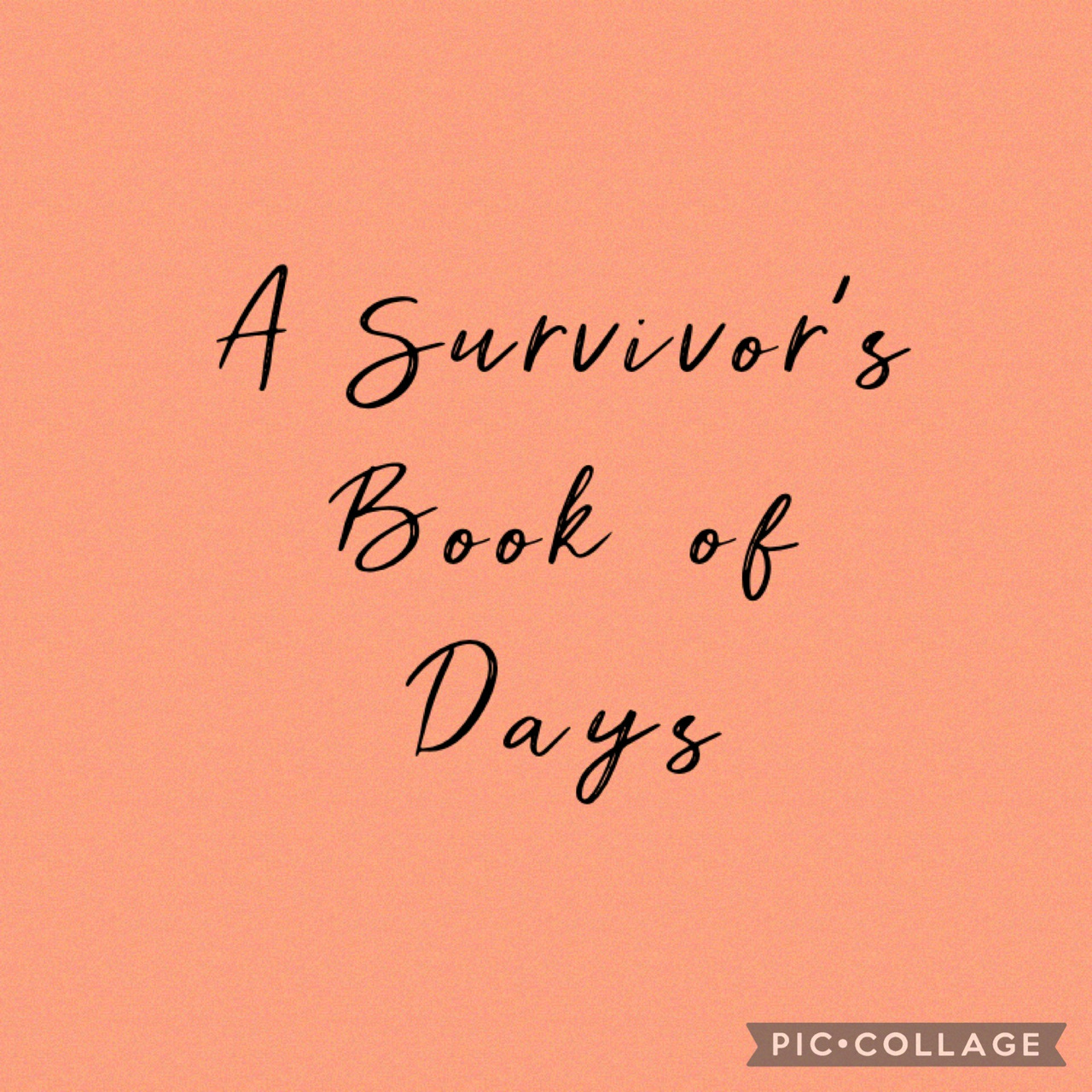







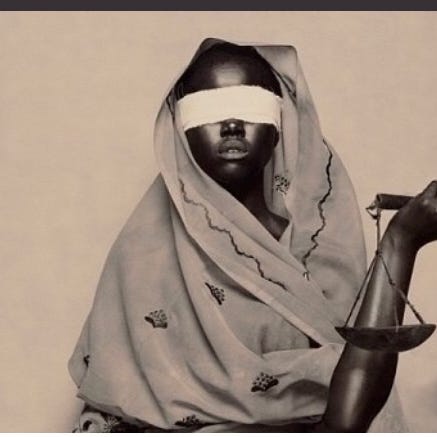
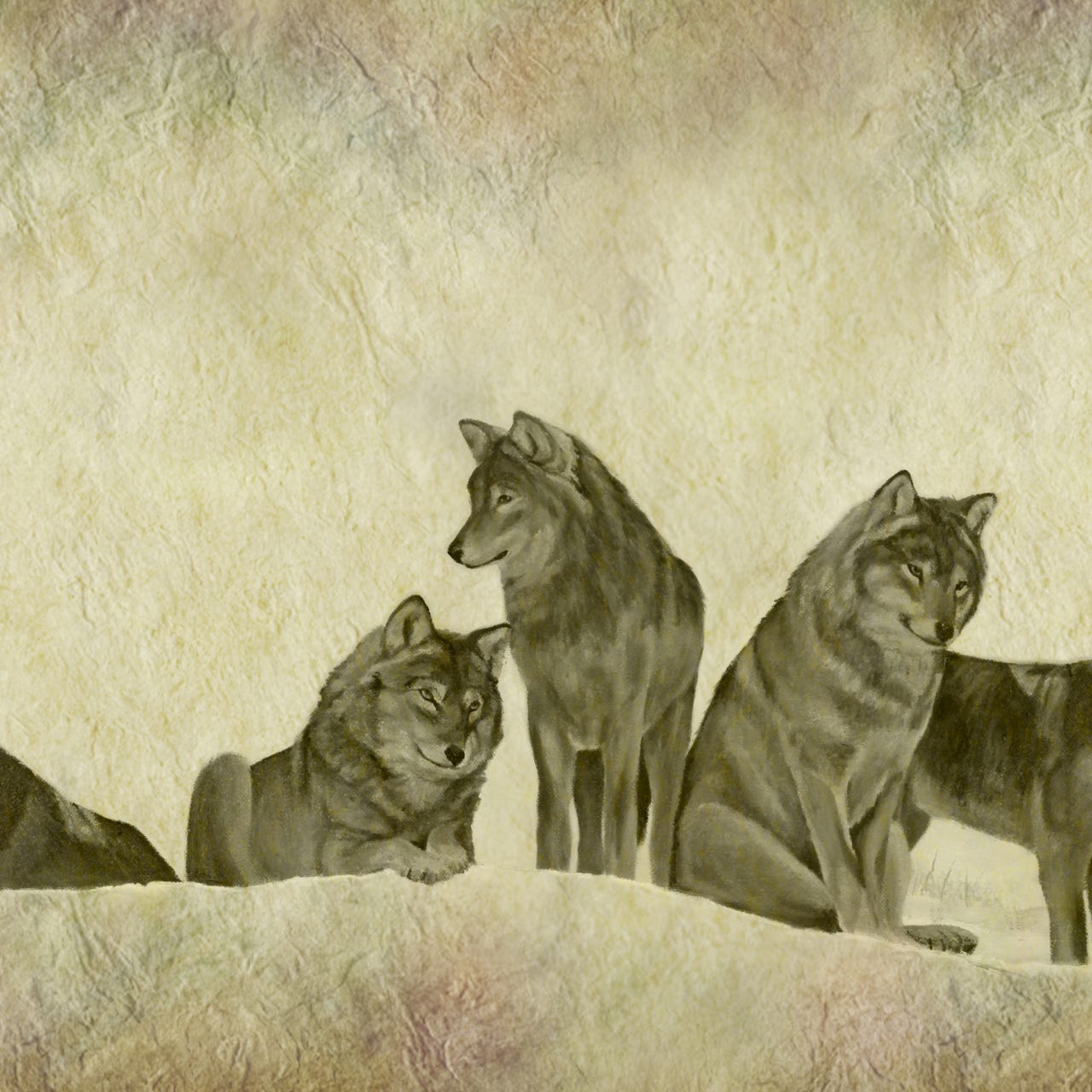





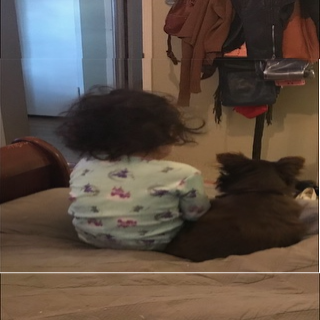


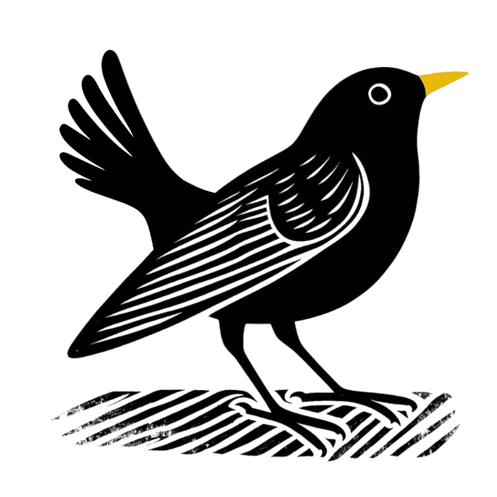


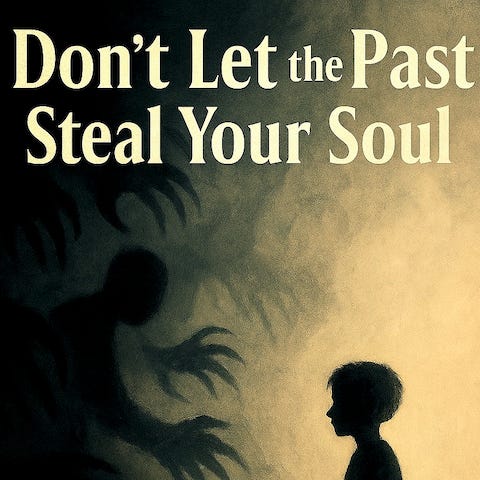
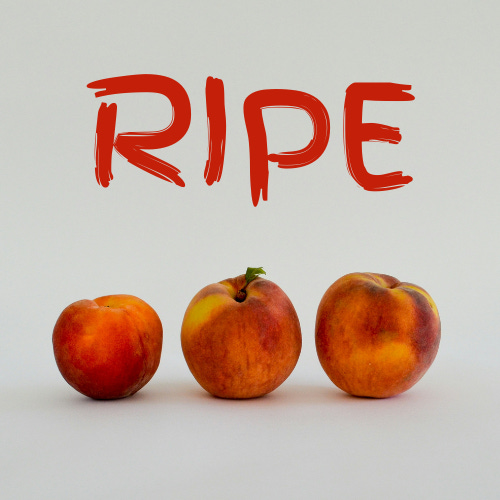
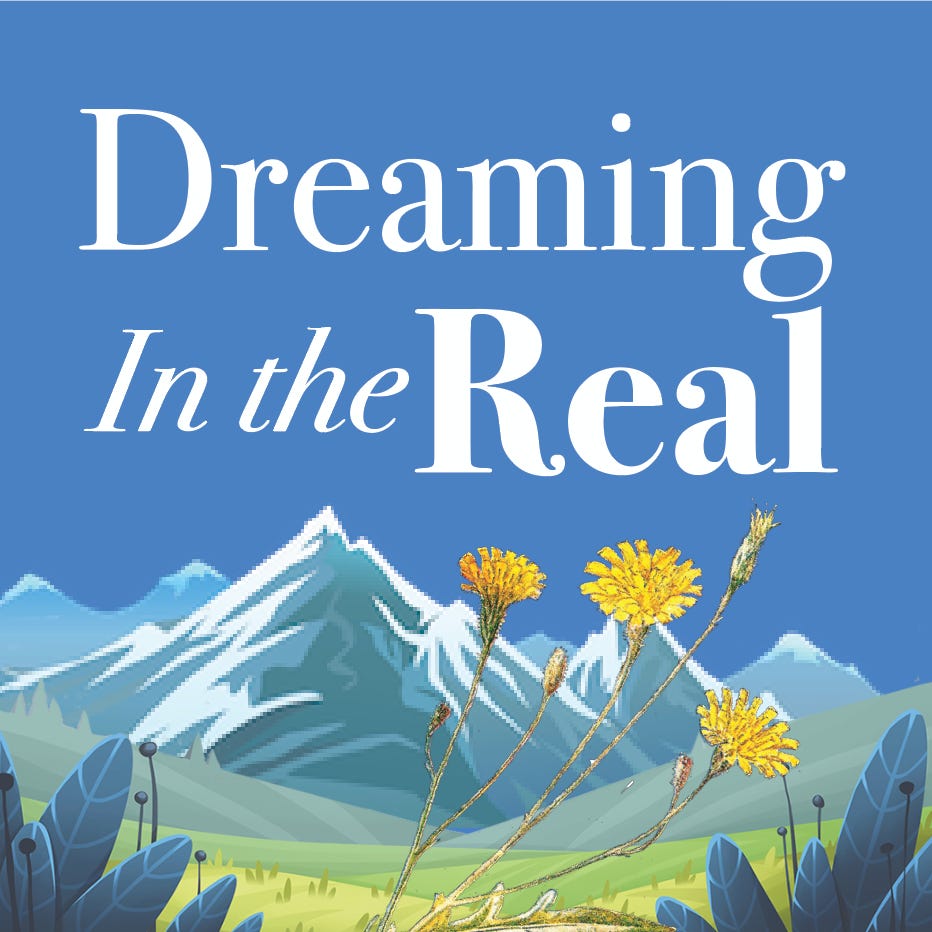


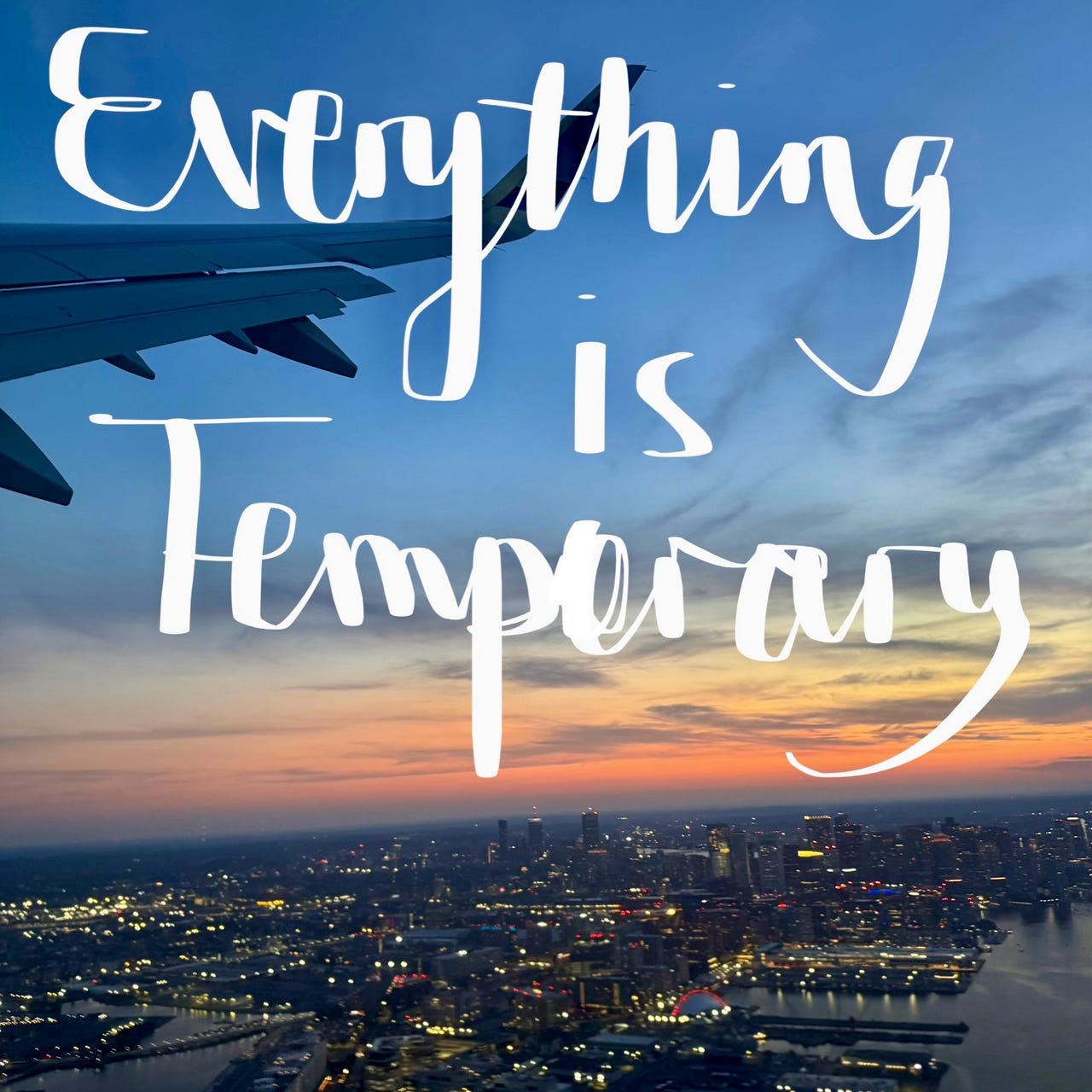






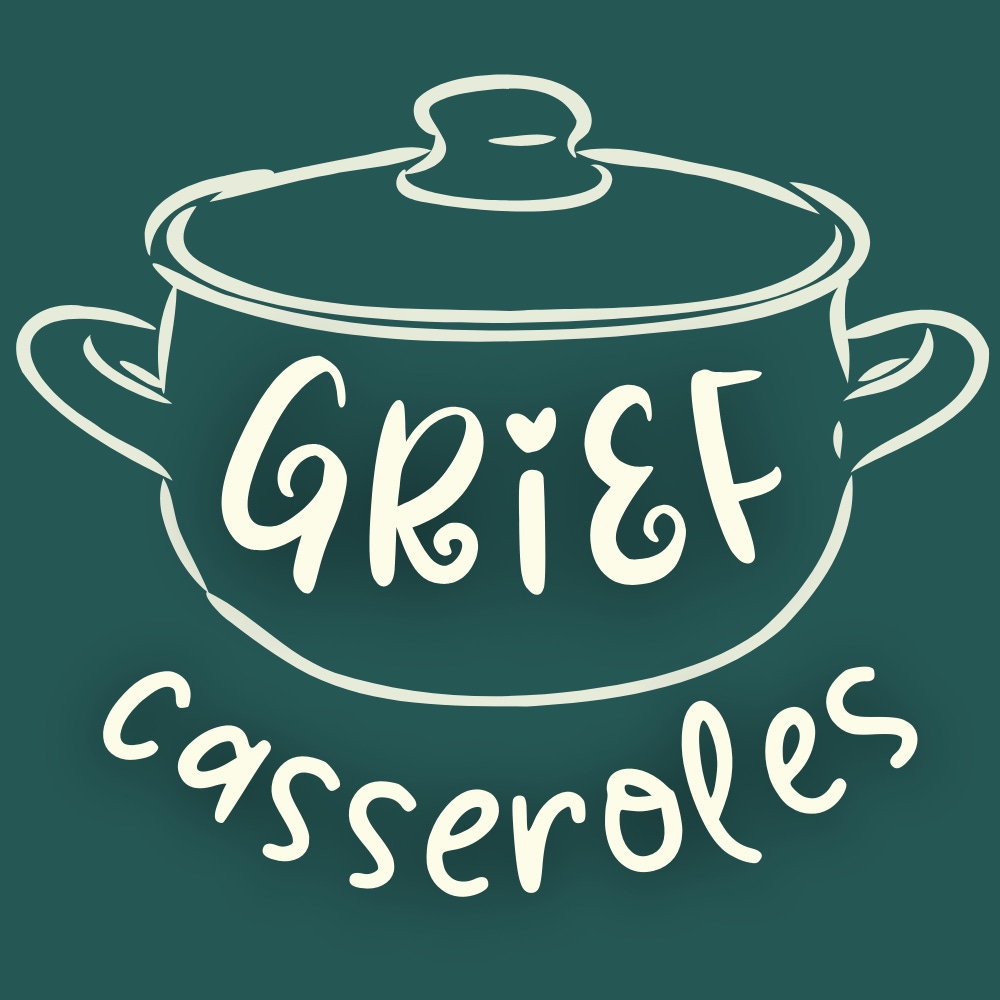

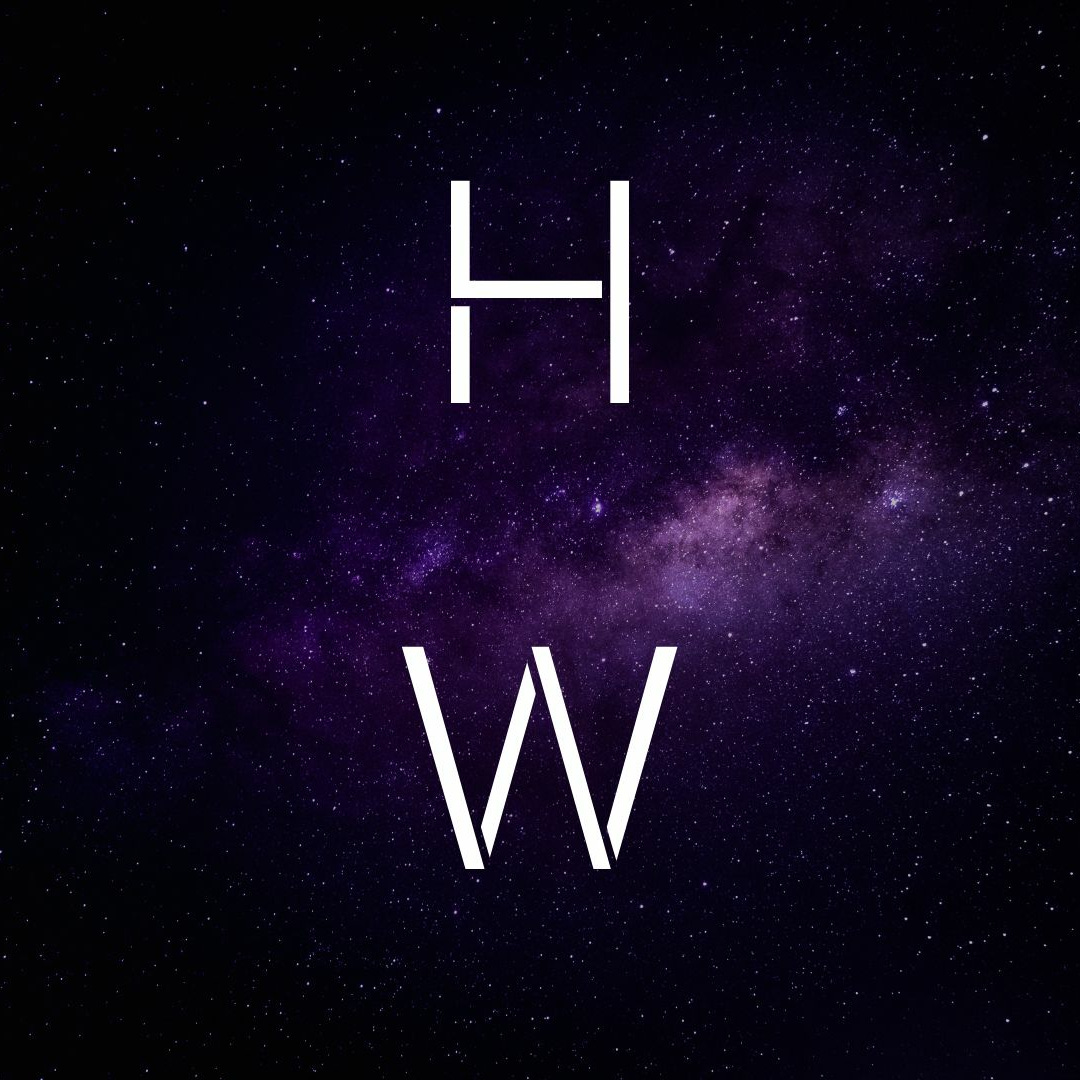

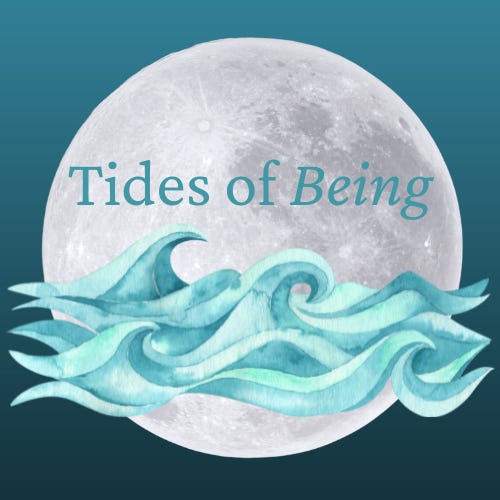

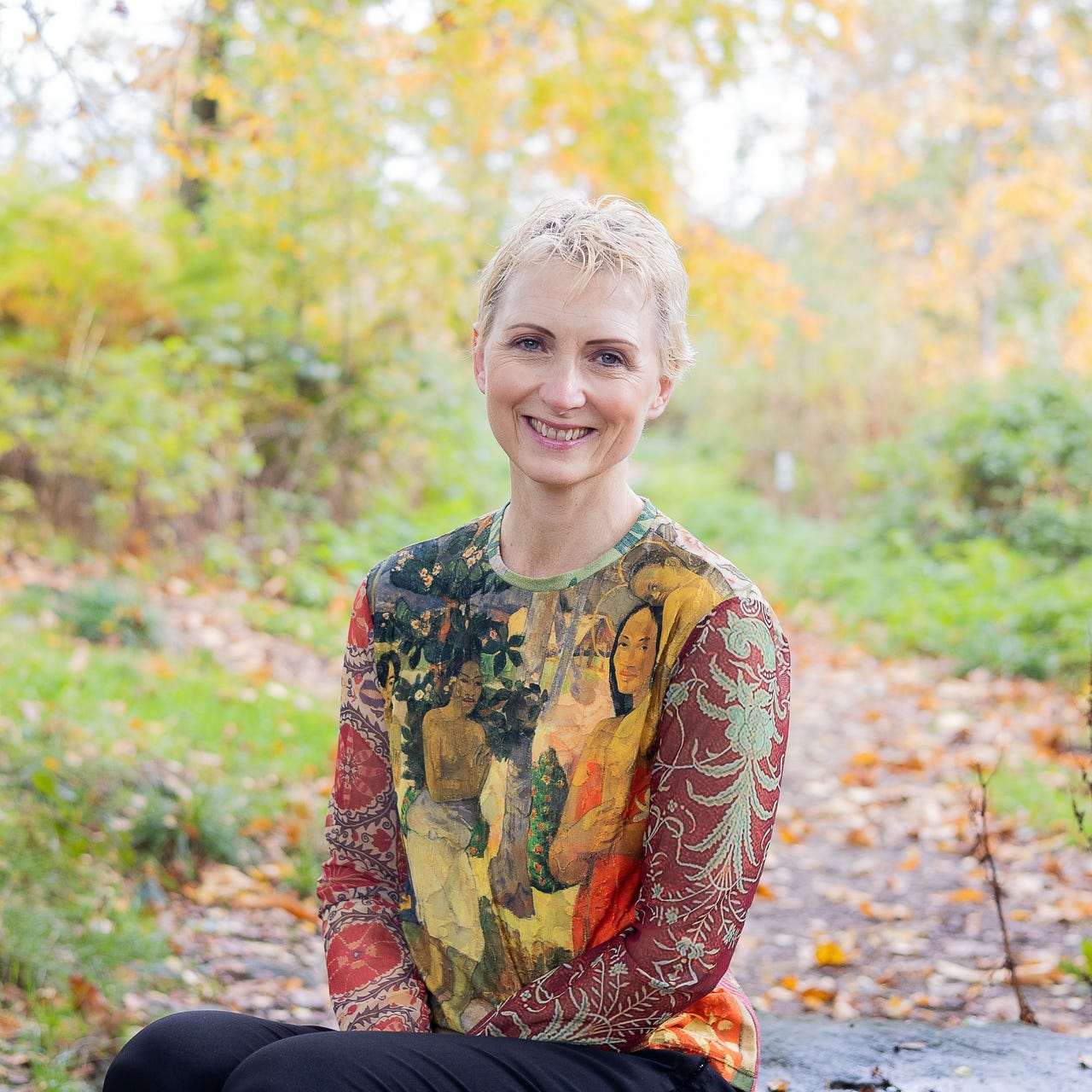
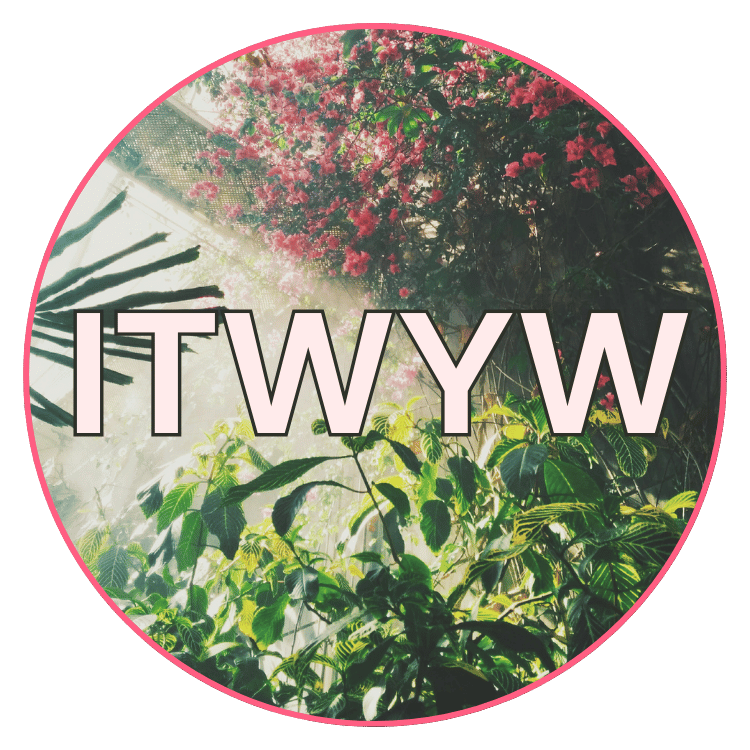
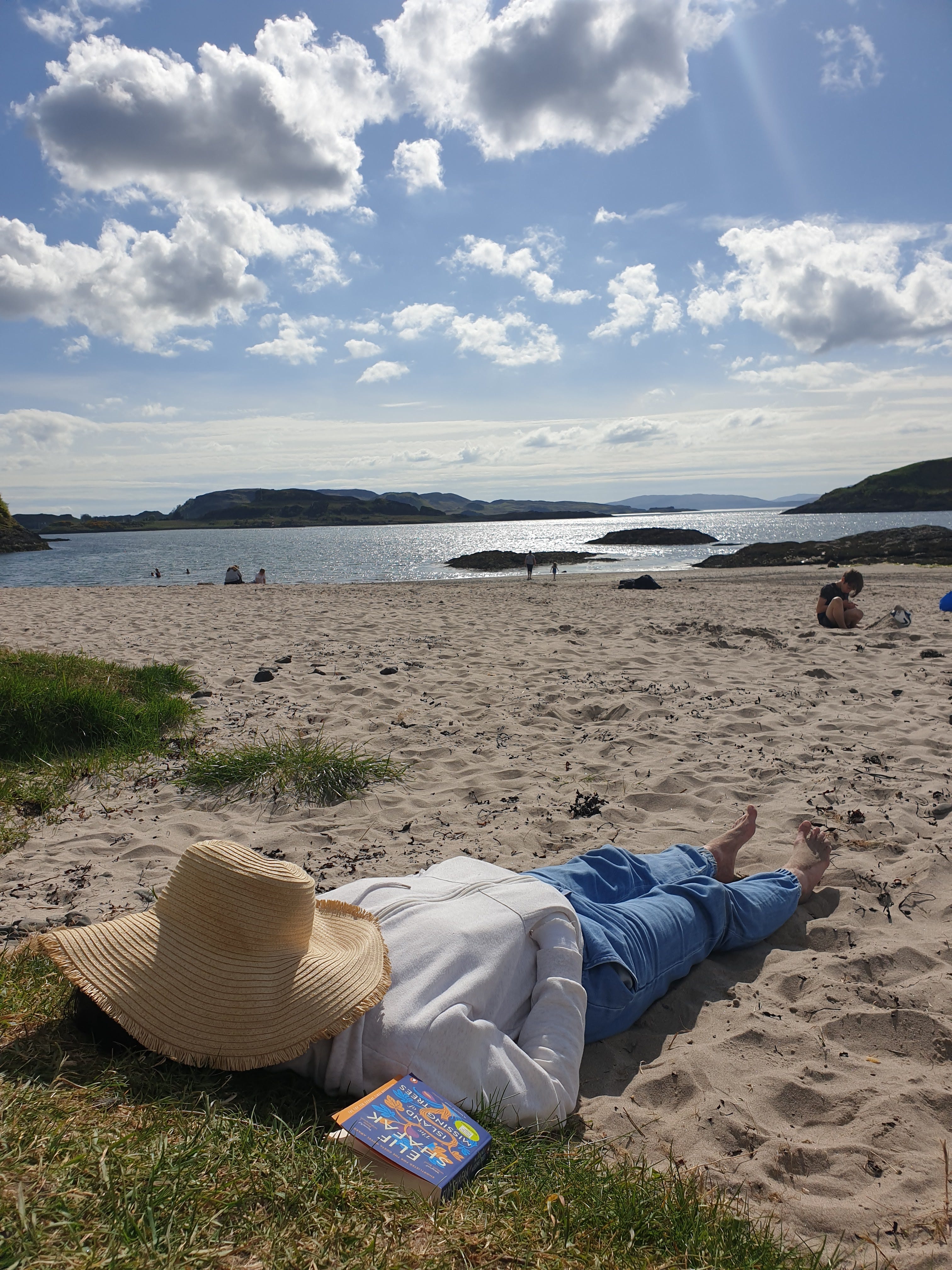
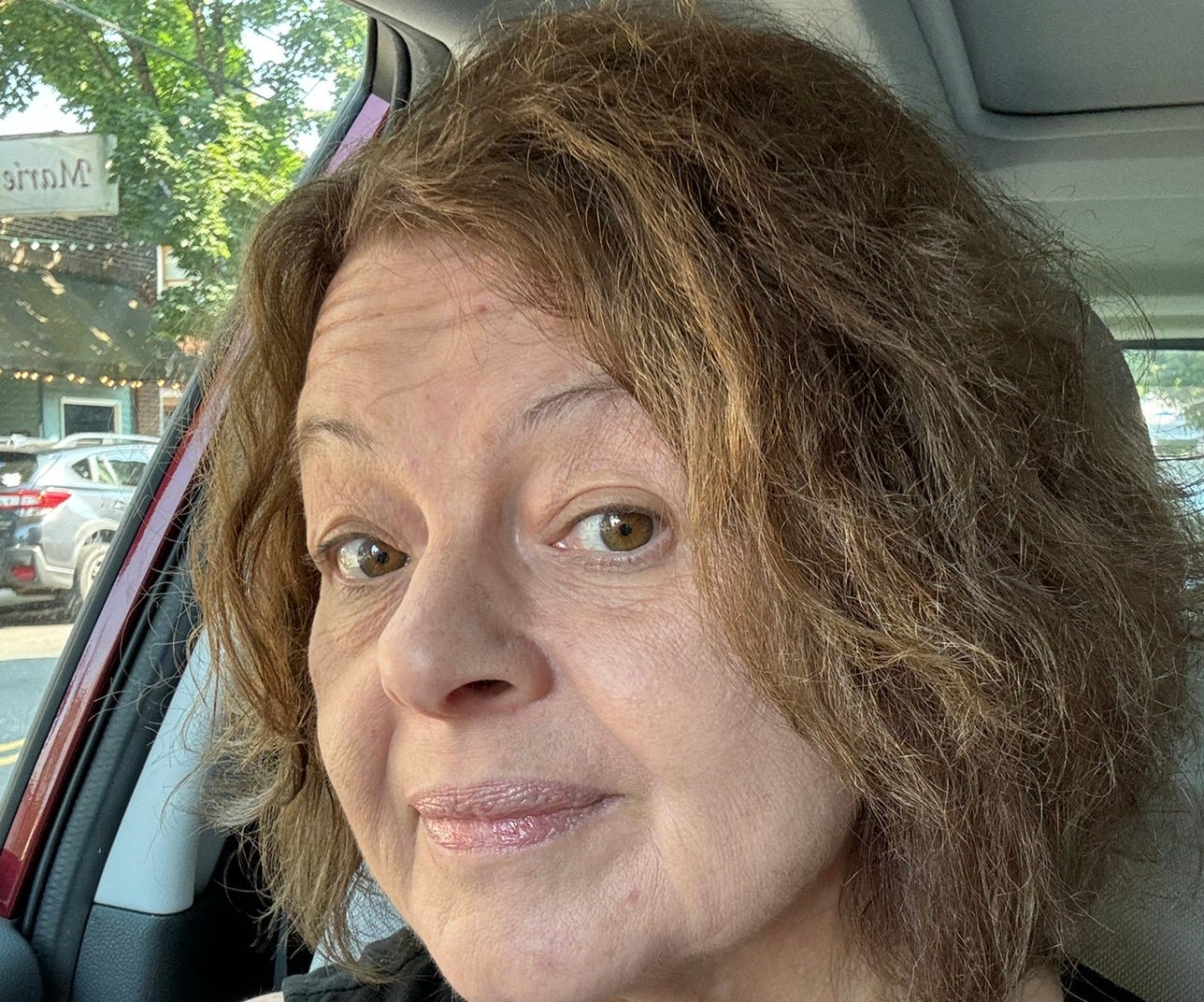


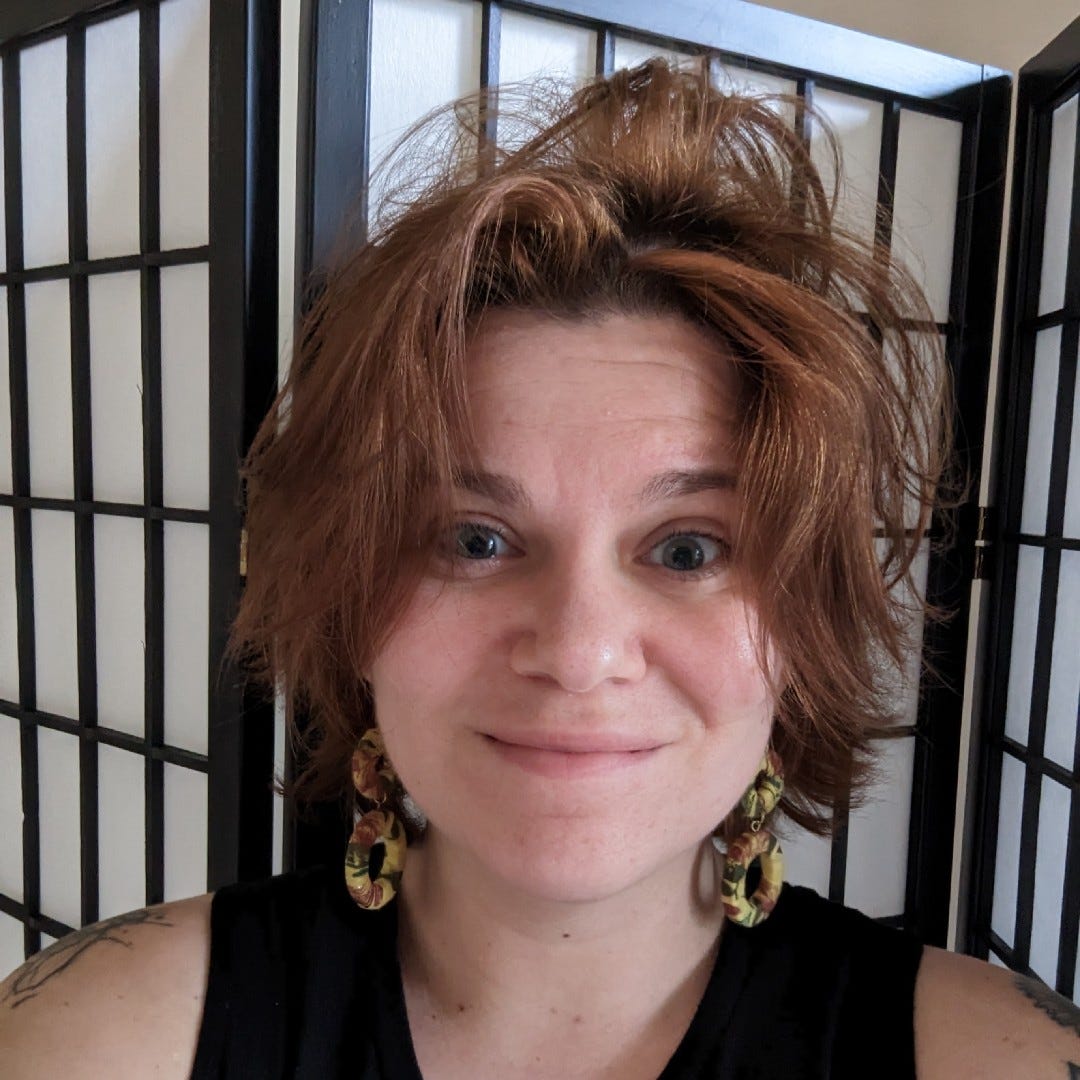
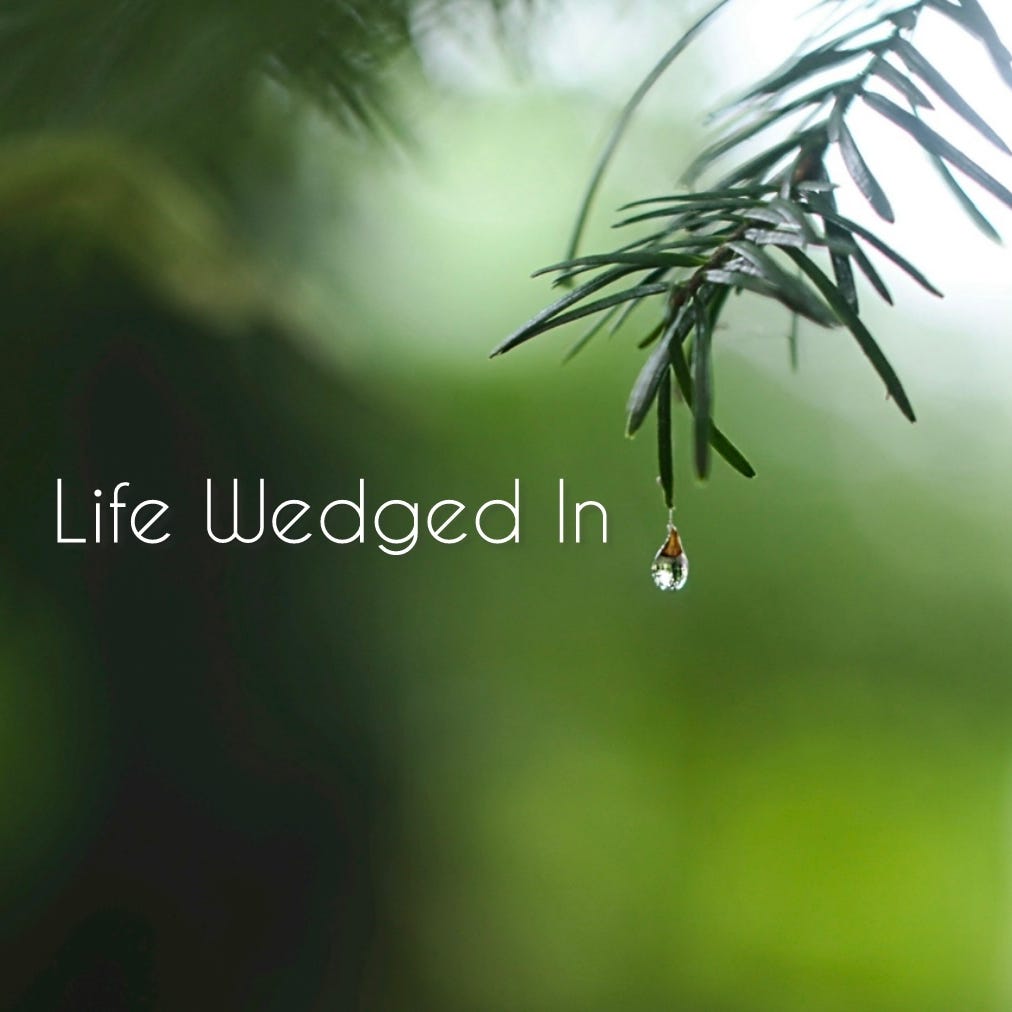
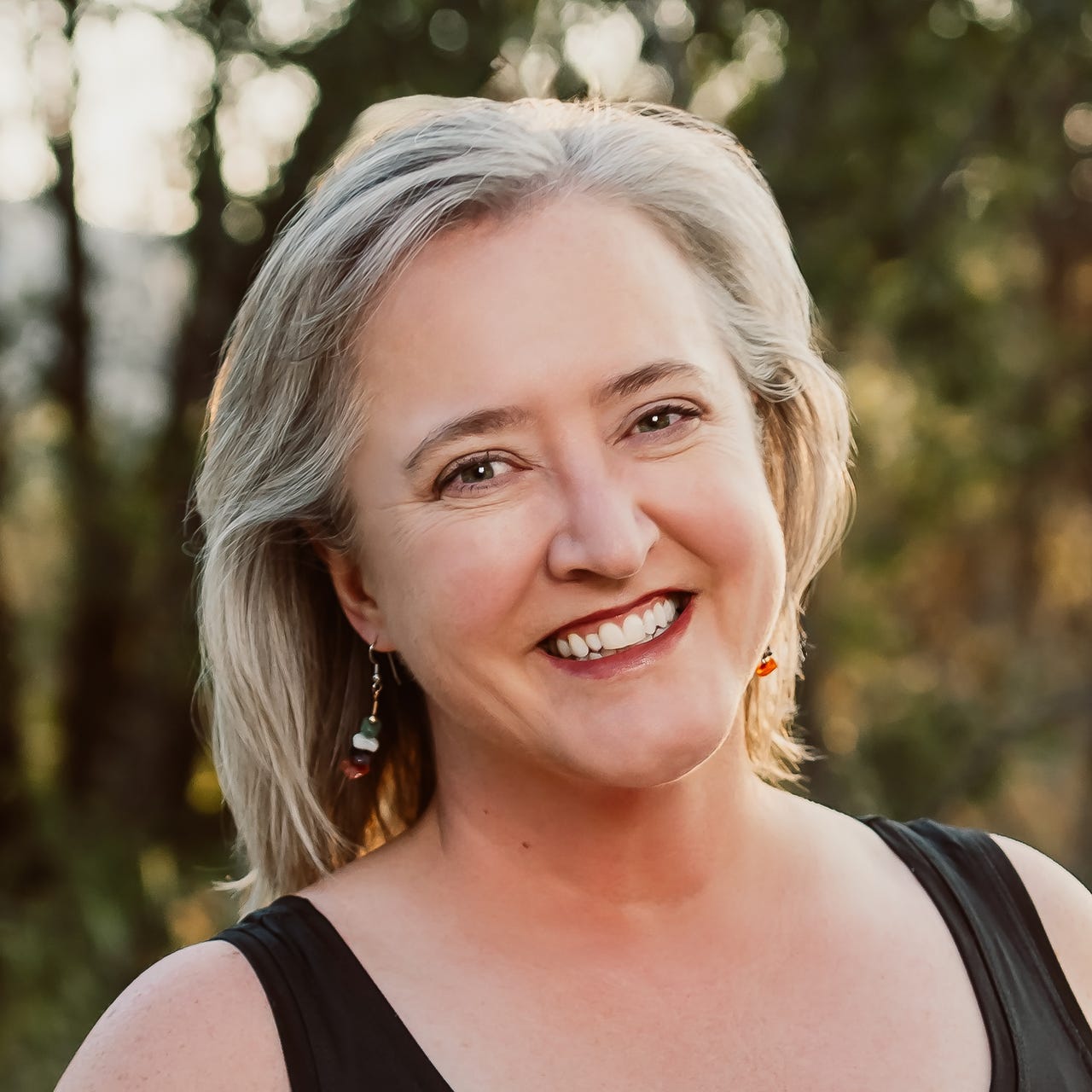
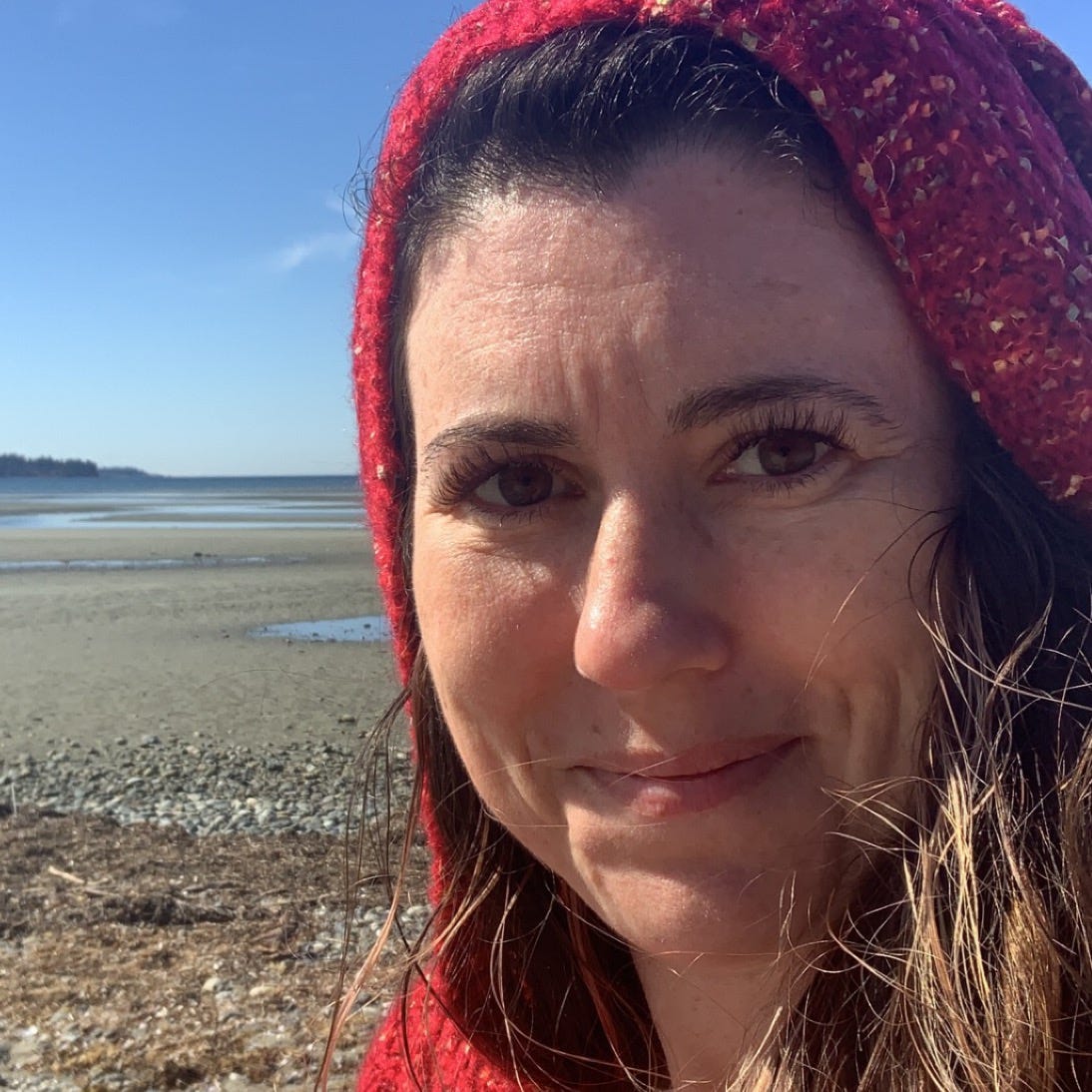
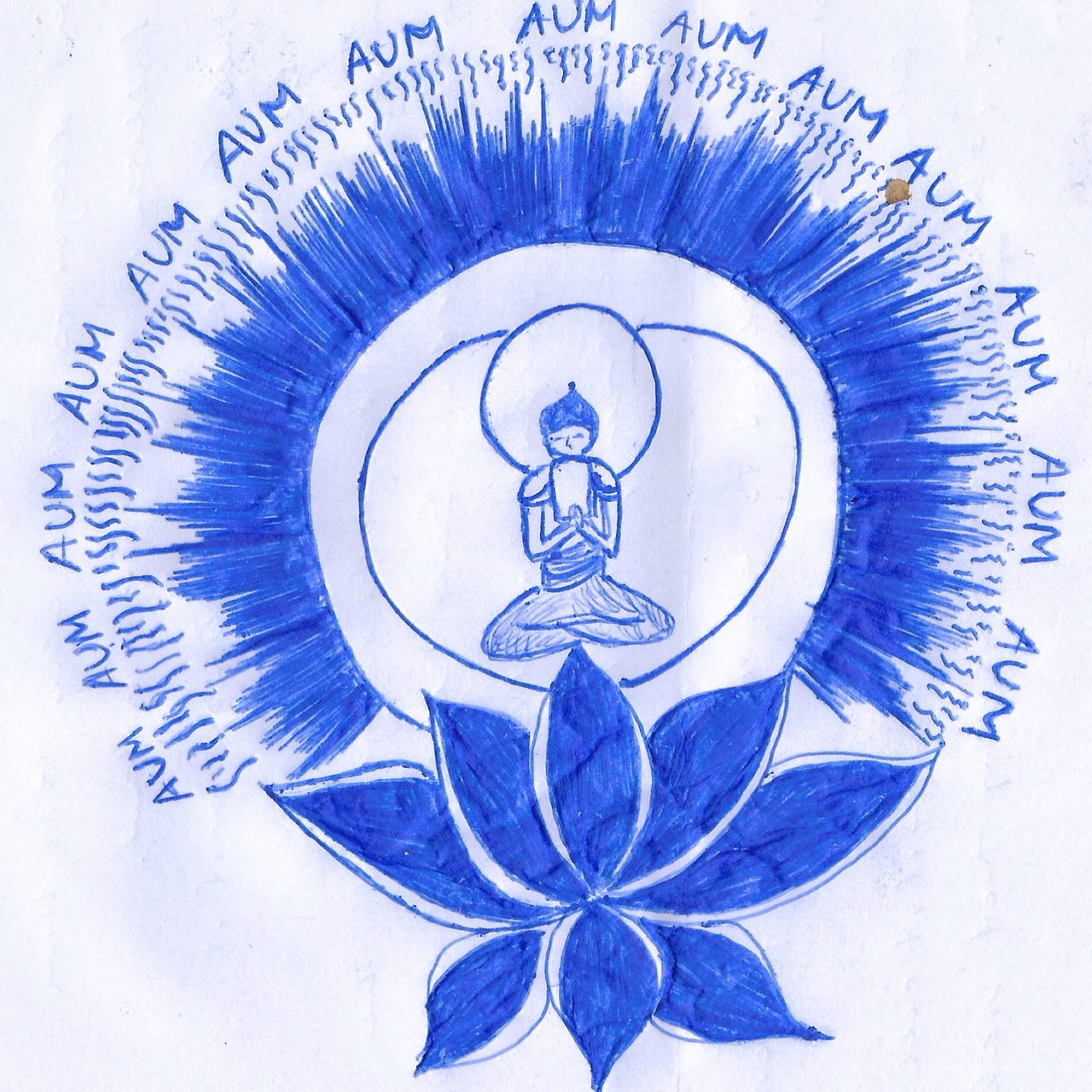

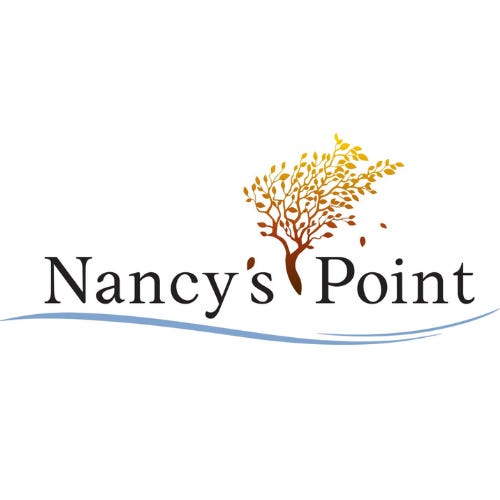
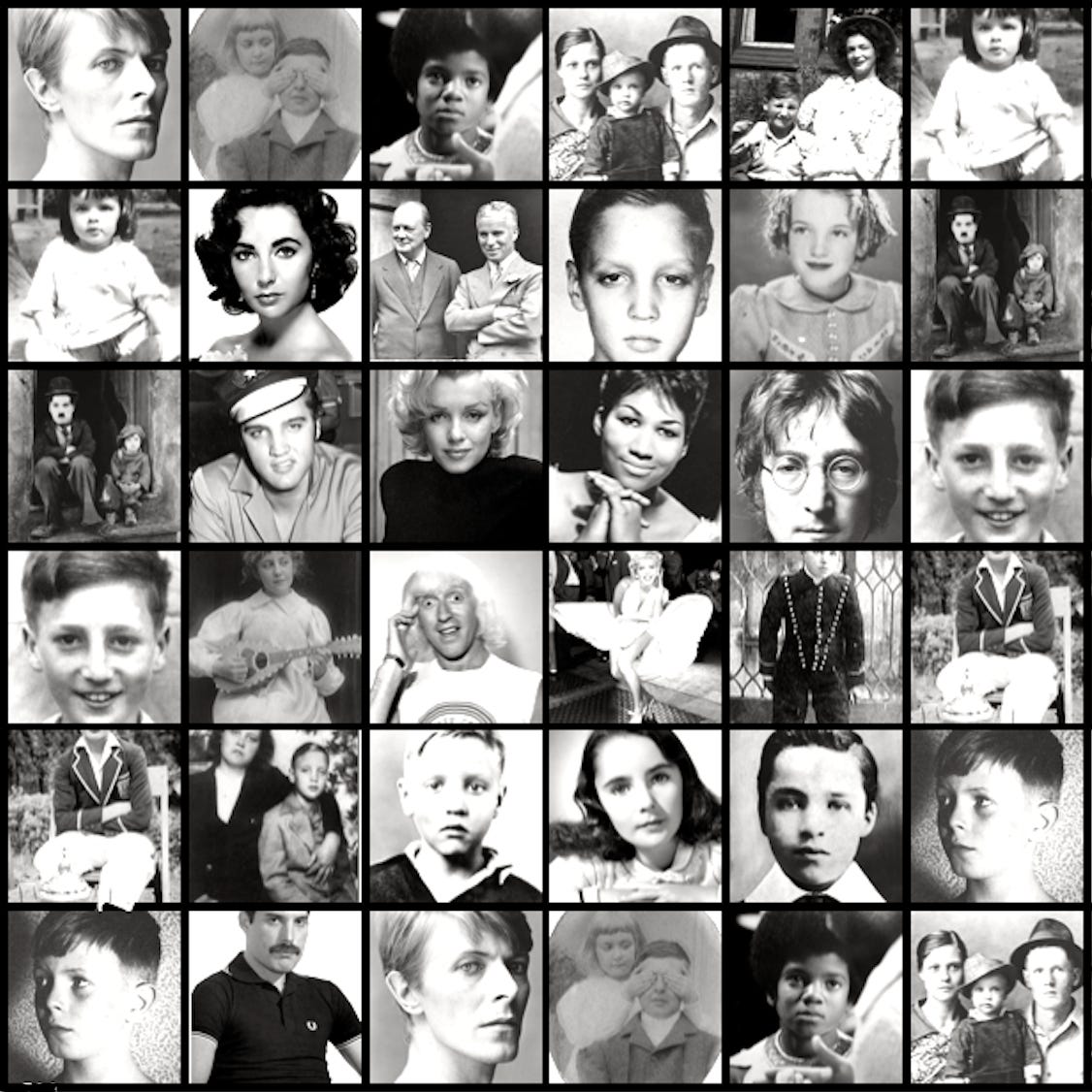







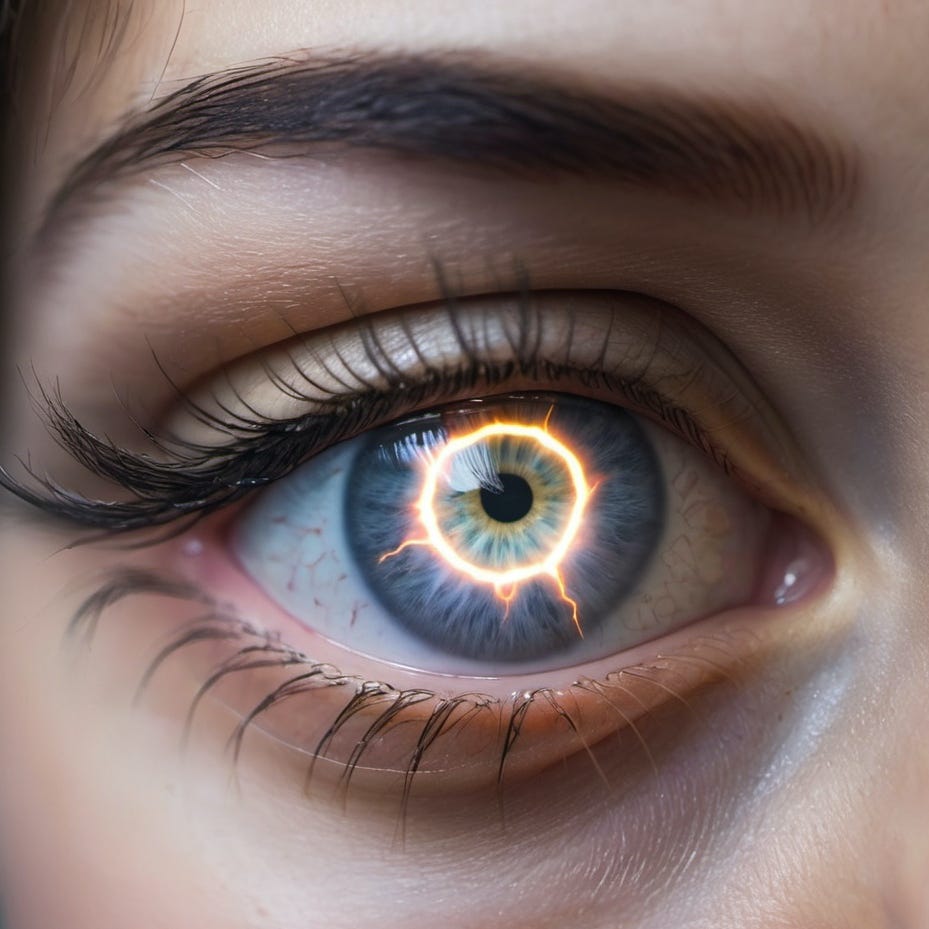

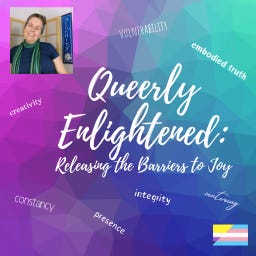






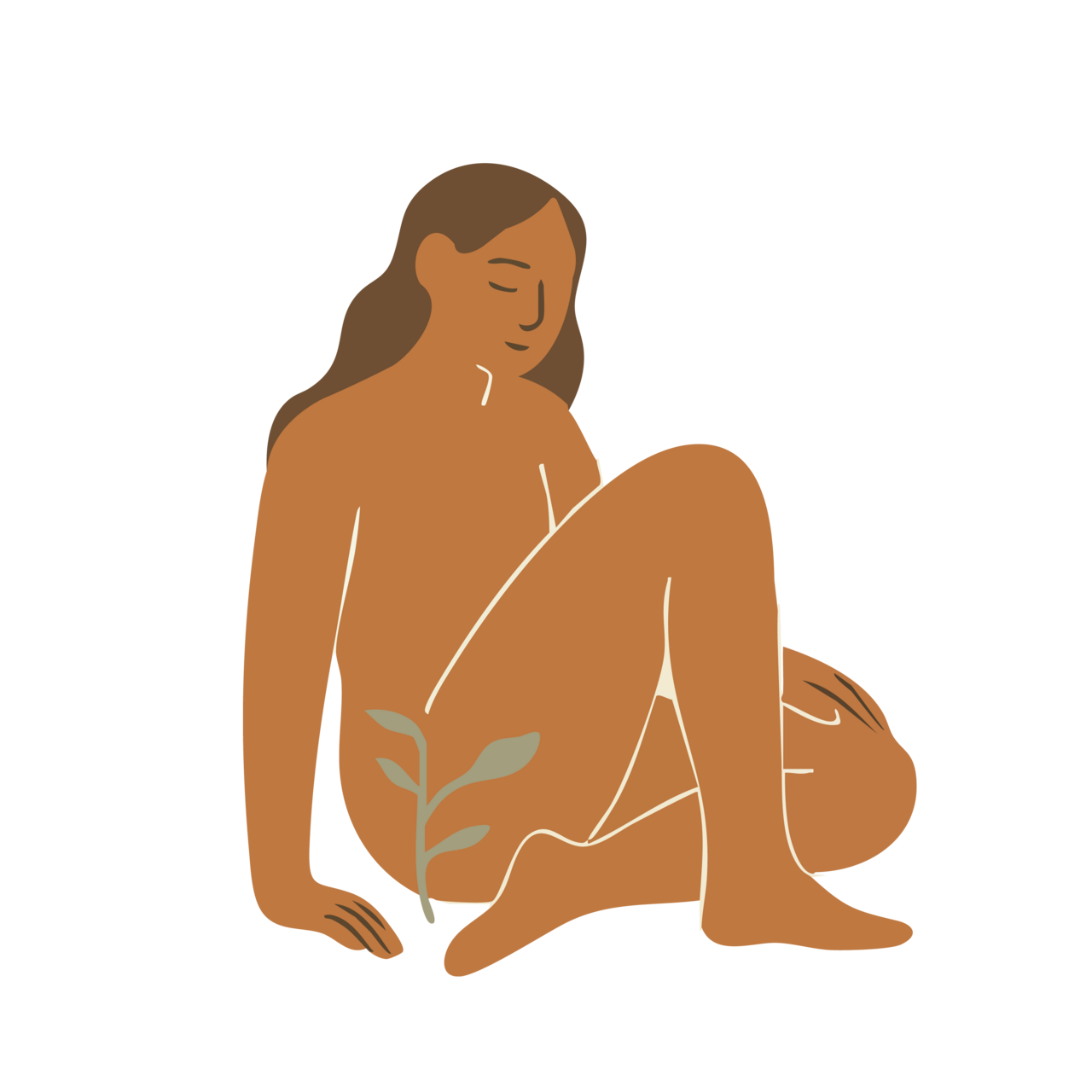







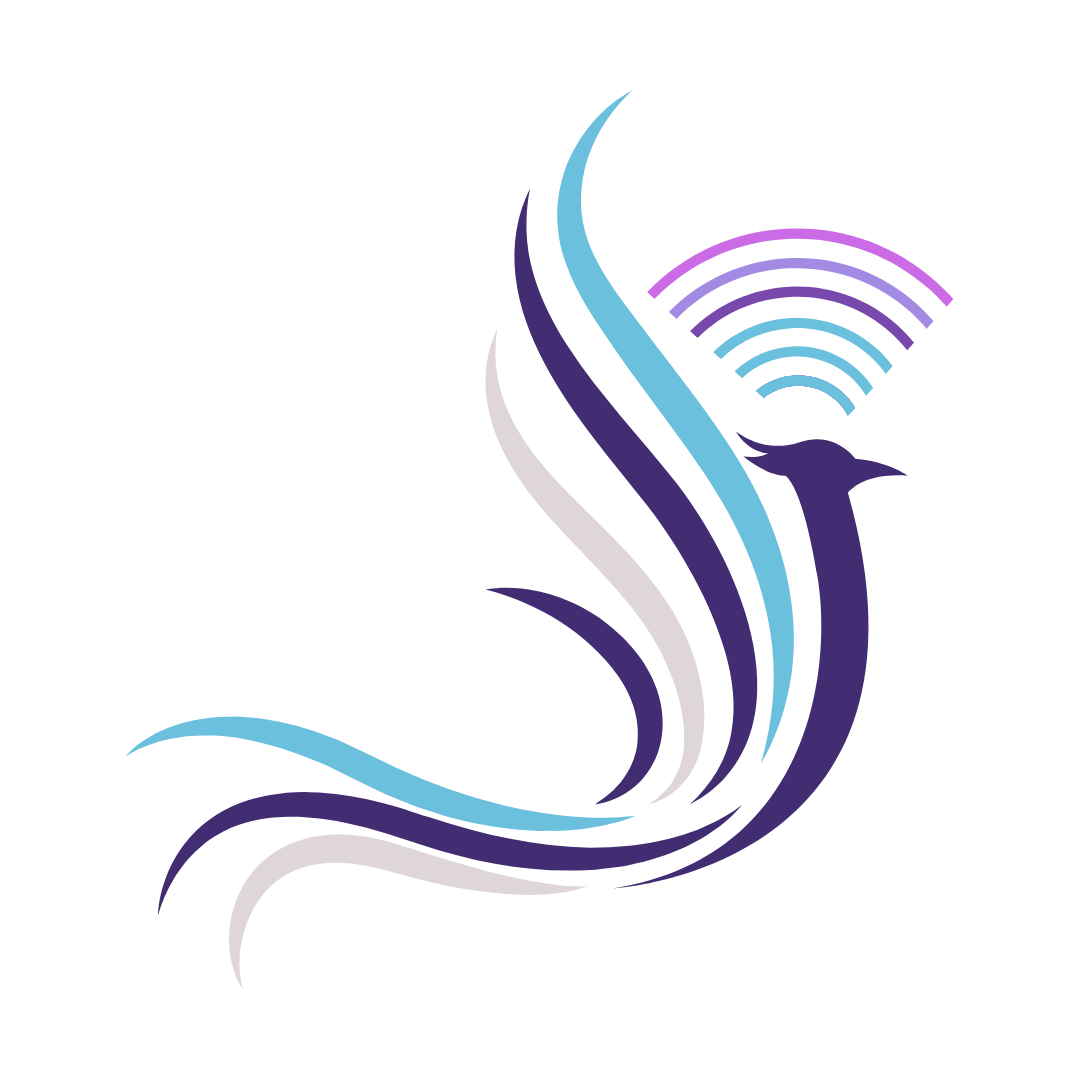


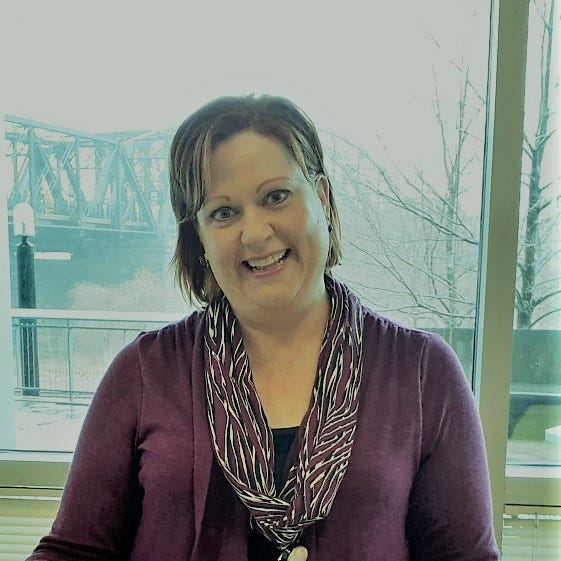







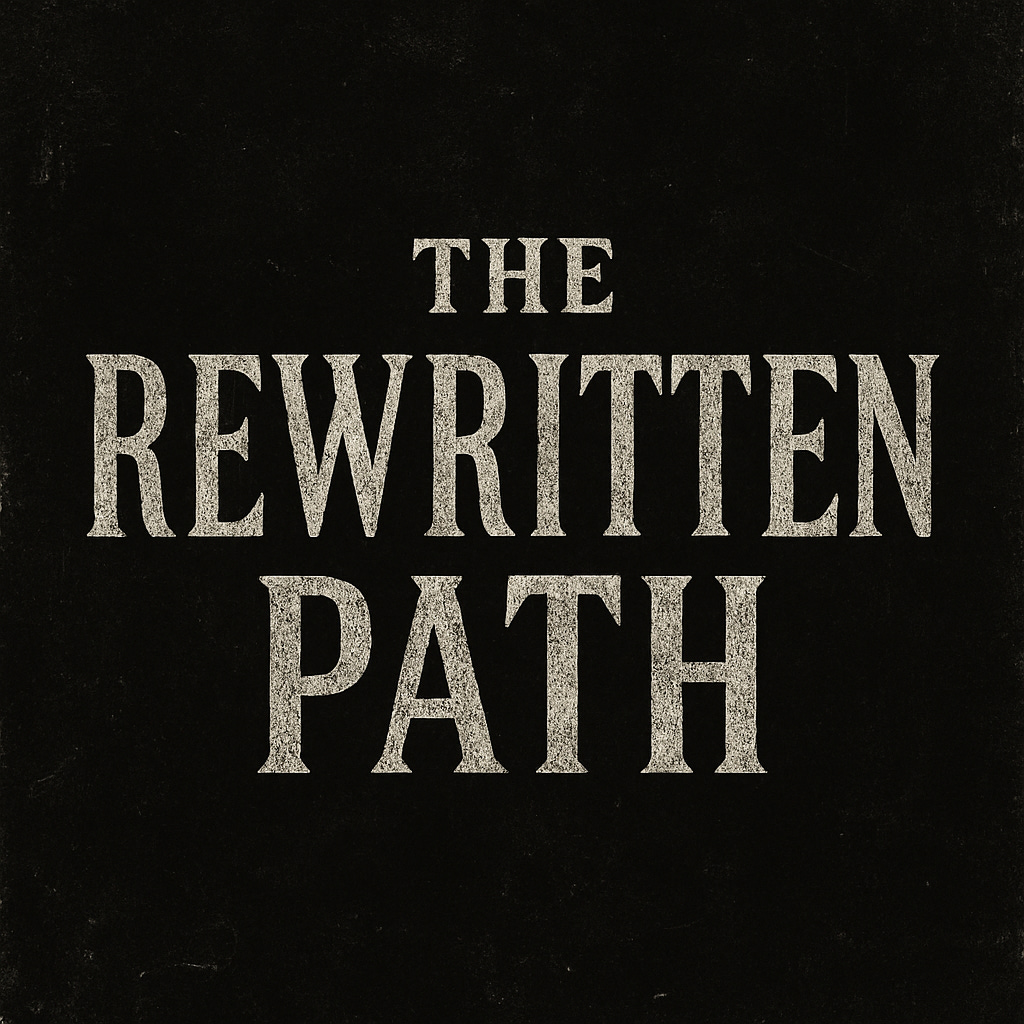












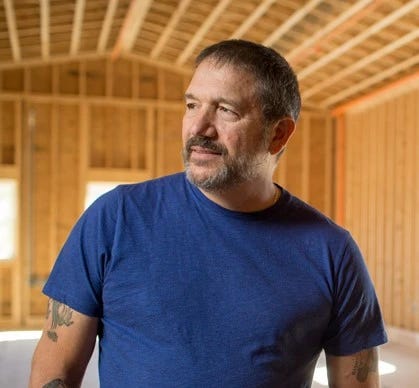




This is amazing Clare, congratulations!
Thank you. Trauma splits life in before and after. It does come with mourning the person you were before. I hear you. Just a random thought: but isn’t it so strange that I don’t know a single woman who has not to a certain degree been exposed to sexual violence? Yet the silence and shame made us believe we were the only one (and therefore must carry part of the blame). It wasn’t until metoo that my male friends finally joined the conversation. Out of sheer shell shock.